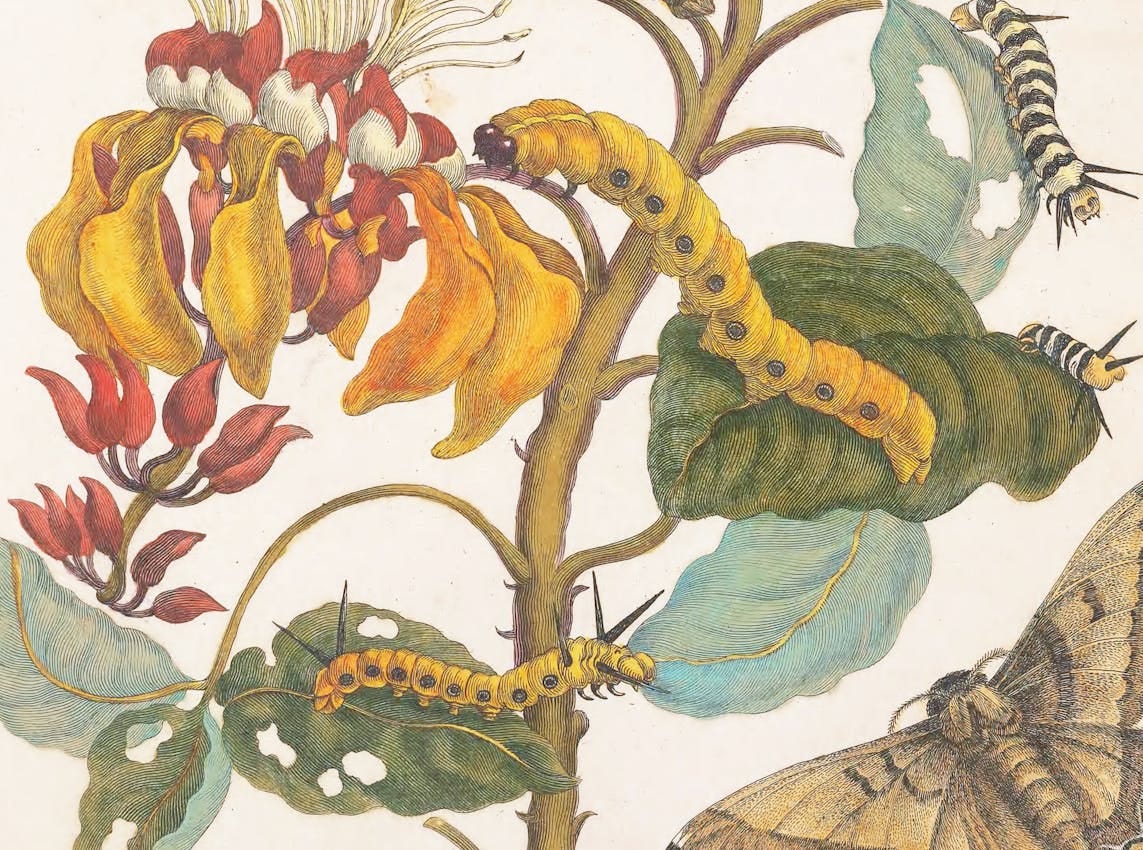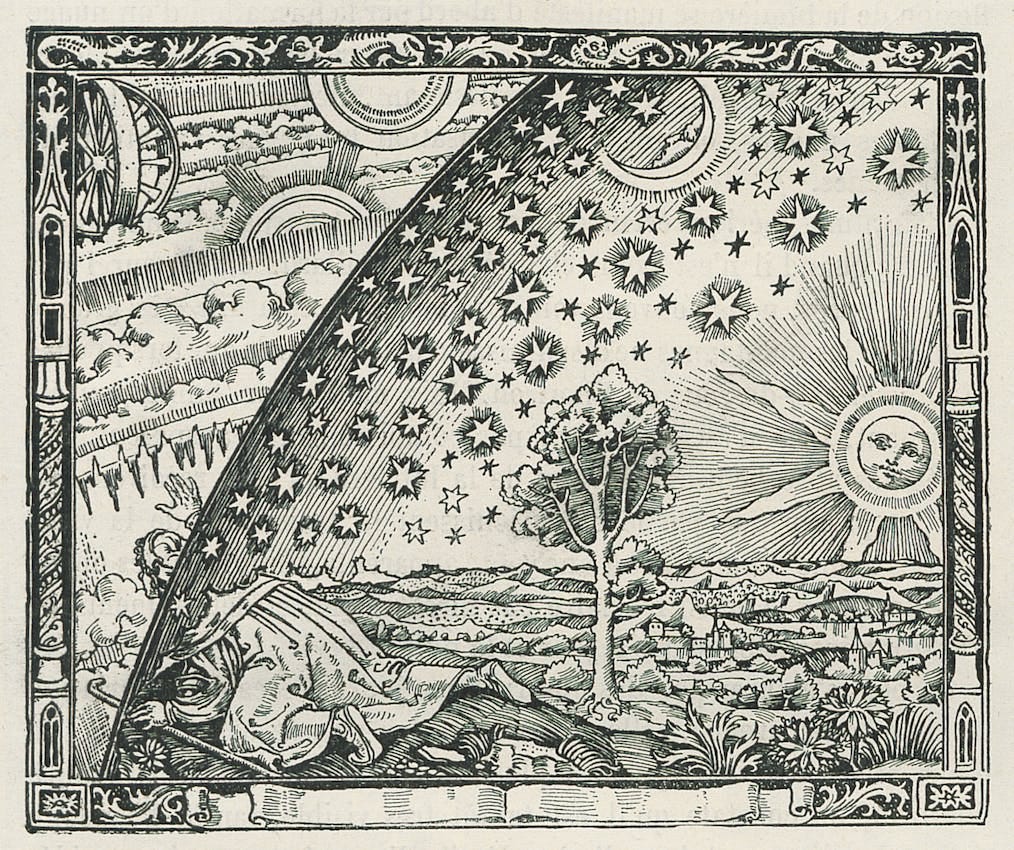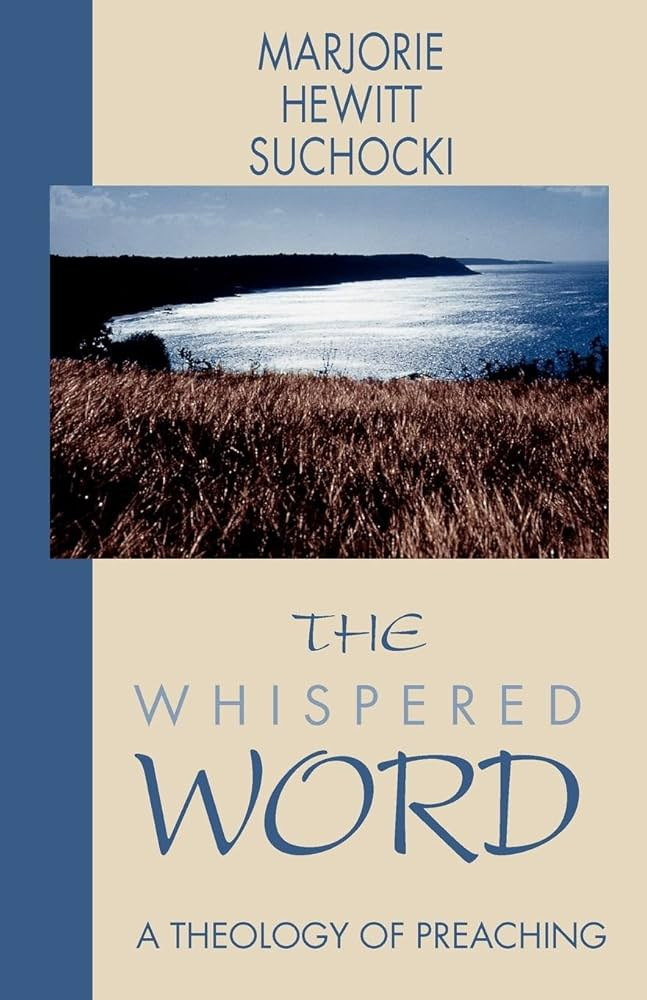The pieces we create with our creativity and artistry are indeed lovely, but they are simply the mushroom cap that sprouts above the ground, indicating the invisible yet vastly expansive mycelial network that nourishes it and connects it to its kin.
The first time I was introduced to the idea of “process” as something that contained a deep wealth of meaning, I was sitting in John McClure’s preaching class at Vanderbilt Divinity School. We had been tasked with choosing a theologian/homiletician to help frame our approach to crafting a sermon, hoping to glean something of practical significance from their writings. I chose a book by Marjorie Suchocki, and after sorely mispronouncing her name when identifying my selection in class (it’s pronounced like SOO-hockey), I left class to seek out The Whispered Word.
I’d like to say I dove into this book immediately, but that would be a bold-faced lie, because I’m a grade A procrastinator. So I likely dove into the book at the very last moment, giving myself not quite enough time to read deeply but just enough time that I didn’t feel compelled to forgo the reading altogether.
Not to be dramatic, but everything kind of changed when I cracked open that book.
In Marjorie Suchocki’s writing, I felt the kind of kinship one would expect of an unknown long-lost sibling–something like “I immediately know you but I didn’t know until right now that I do.” The Whispered Word and the ideas therein made me feel both held in comfort and compelled into action. There were many important influences in my homiletical education, of course, but that book in and of itself truly made me a better preacher.
I apologize if you’re waiting for a summary. That’s not what this is, but if you’re interested in preaching and process theology (or think you might be), please go pick it up. Dr. Suchocki’s writing is a delight.
I will, however, direct you to this little primer on process theology written by Dr. Suchocki.
This is all to say that through this one little unassuming book with a decidedly vintage-looking cover, my world opened up to process.

The heart of process is relationality. You’ve likely heard the phrase “process over product” or something similar to that. This sentiment insists that rather than some finished product, the process of creating it is actually the most important part. This goes directly against a deeply ingrained belief in the society we live in. Perfectionism tells us that the most important thing is that some product is polished, well edited, and of an acceptable quality so as to–and here comes the influence of capitalism–turn a profit from it. Placing a value on the final product elevates transactionality above all else. It doesn’t matter what it takes to get there; all that matters is that the product at the end is desirable to consumers who are willing to pay for it.
An attentiveness to process, on the other hand, does not denigrate the final product as unimportant. What it does do, however, is reposition the product as the thing comes out of the process, rather than seeing the process as simply the means to create the product. If that sounds merely semantic, I hope to convince you that it is not–it is, to me and many others, a crucial step in restoring the process to the role of wisdom-bearer and tree of life while remembering that the product is the fruit: delicious yet ultimately perishable and impermanent.

Process is quite the opposite of perishable. Process exists in an interrelated web of being, holding all things together. The influences on any process are perhaps infinite. Take, for example, the making of a simple shirt. The resulting shirt itself is nice to have, and may indeed be a necessity. But that shirt will wear out, fade, and (if it was made by me) probably already contains some imperfections or irregularities somewhere in its construction. The process of creating that shirt, however, existed along the intersections of uncountable influences: my mother and grandmother who taught me about sewing, the woman from whom I took lessons as as a child, the salesperson from whom I bought my sewing machine after speaking with him about its desirable features; the fashion trends that evolved this particular shirt into something I wanted to create; the pattern maker; the store from which I bought my thread and material; the many social media creators from whom I’ve learned some of the more finicky techniques I used in constructing this shirt…and so on. And those are only material influences! How could one begin to quantify the immaterial influences like the relational wisdom that has passed sewing knowledge through the generations and generations of artisans before me? The shirt is merely a shirt. But the process is infinitely more.

Process is one of our greatest teachers. We learn so much through our own experiences and the experiences shared by others of creating, failing, succeeding, evolving, and imagining. It would be incomplete and far too self-centering to say that you hold within you all the wisdom you need. You yourself are a process. You are not a self-contained vessel of wisdom. You are a river through which infinite influences are always flowing. Your creativity is not only yours, and my creativity is not only mine; it belongs to all of us because it comes from all of us. We are simply its keepers, its stewards for the time being.

Creativity is a practice entirely centered around process. The pieces we create with our creativity and artistry are indeed lovely, but they are simply the mushroom cap that sprouts above the ground, indicating the invisible yet vastly expansive mycelial network that nourishes it and connects it to its kin.
Your process matters. Far more than your finished products.
I say this not just for you but for myself: when things feel overwhelming and painful and impossible, take your steps that you know to be important, reminding yourself as you go that you are a disciple of the process; that you are learning and becoming as you walk the path. And that your learning and becoming is influencing others in ways seen and unseen, steadily and surely making the world a more liveable place.






Reading this belatedly and copying down so many phrases. Thank you, Mollie!!